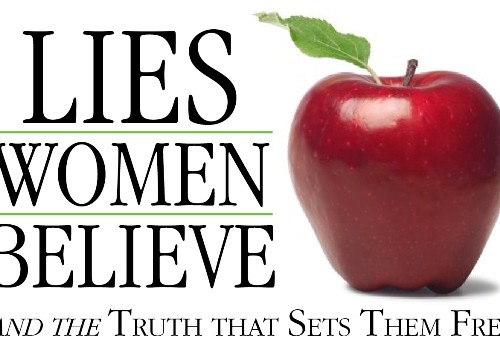“Just Friends in a Just-Do-It World”
I’m just covering one chapter for today’s review– I’m not sure if I’ve mentioned this, but I got a job at a local used bookstore. Usually I only work two days a week, which makes it doable with my fibromyalgia, but I’ve needed to work the last four days. On top of that, my childhood dog passed away this afternoon (she was 15), so today has been … rough. It’ll be back to the regular schedule on Wednesday, though, never fear.
This is one of those chapters where I just want to throw my hands up into the air and shout “I reject this entire premise!” since it’s basically all practical advice on how not to date, since we all know dating is like falling off a cliff. In fact, being just friends is as difficult as walking a tightrope over a “gaping chasm” (124). Images like these are frustrating because they don’t reflect reality at all. Dating someone and breaking up is not as harmful as falling off a cliff. That kills you. Dating is educational. Breakups are educational. As long as everyone’s boundaries and autonomy are being respected, a little bit of the blues at the end of the relationship isn’t going to kill you. Not even close.
I just do not understand why Joshua believes experiencing some temporary sadness is as horrifying as falling to your death. So, instead, lets take a look at the advice this barely-not-a-teenager person has for people trying to keep things “just friends.”
For this chapter, he’s drawing upon the biblical metaphor of “brothers and sisters in Christ” in order to inform his opinion on friendship. According to him, there are a few characteristics of being someone’s brother or sister in Christ: biblical fellowship, affection, and genuine care.
Biblical Fellowship
He argues that Christian friendships won’t be “shallow and meaningless” like what you see on television sitcoms, instead “their passion isn’t to appear witty, but to grow in godliness” (129). First, I’m pretty confident that most people are aware that their relationships don’t look like sitcoms, but I’m not sure Josh knows that. If he was anything like me at his age, he was told by the authorities he trusted that Seinfeld and Friends are an accurate depiction of secular friendships. Except, things like How I Met your Mother and anything written by Aaron Sorkin are good television because they’re not like real life. No one steals a blue french horn off a restaurant wall in order to impress a girl. Women do not show up in coffee shops wearing their wedding dress looking for their high school buddy and a place to live. But why am I telling y’all this?
The problem with Joshua’s attempt to contrast supposedly secular and Christian friendship fails, because in truth it’s more of a comparison than I think he realizes. I don’t think non-Christians walk around spending all their time trying to appear “witty,” but plenty of the Christians I’ve known do walk around trying to appear “godly.” Most of the relationships I’ve had with church folk have been shallow and meaningless because everyone was making sure they appeared “godly” instead of human. I’ve known some church people for half a decade that I barely know because the only thing I’ve ever heard them talk about is how much God’s blessed them. It’s difficult to form a “deep friendship” with someone who’s never honest because being transparent would threaten their reputation for “godliness.”
Affection
He uses an example in order to explain what he means:
On one occasion the men of the group planned a special dinner for the ladies, served all the food, and even had special gifts for each girl. After the meal the men shared reasons why they respected and valued the friendship of each girl. This is genuine affection! (130)
No, Josh, that’s weird and creepy. This kind of event is also a marker for a cult– churches that actively foster this sort of environment are establishing a boundary-erasing over-involvement. One of the things I’ve had to unlearn is how incredibly bound up together the members of my cult-like church were. There were so many strings tying us up, it was like being caught in a spider’s web. At that place, an event like the one Joshua describes would be commonplace, but I’ve never experienced anything like it at healthier churches … for a reason.
Genuine Care
This one was just sad because the entire section is focused on criticism.
God used our conversation to convict Christina and reveal the dangerous path she was on. She involved her mom and other girlfriends and changed the nature of her friendship with the guy.
I’ve benefited from being challenged as well. My friend Heather provided this kind of care for me when she talked to me about the way I was interacting with the girls in our singles group … It was hard to hear, but God used Heather’s words to help me change. (131)
There’s nothing in here about encouragement, or support, or compassion, or empathy. Nothing about kindness, or faithfulness, or even forgiveness. To Joshua, apparently the only way to “care” about someone is to criticize them. This doesn’t surprise me, considering the only two things I heard about friendship growing up were “faithful are the wounds of a friend” and “iron sharpeneth iron.”
No we get to the practical advice section of the chapter. It’s a lot of “do group things” and “mostly be friends with other men, guys” (which I’ve had words about before), but I want to focus on his first piece of advice:
Understand the difference between friendship and intimacy.
I have no idea what he’s talking about, and I read this section over a few times trying to figure it out. He’s basing this on a C.S. Lewis quote: “We picture lovers face to face, but friends side by side; their eyes look ahead.” He’s saying that friendships are about “things outside the relationship,” while intimacy is supposedly focused on the “relationship itself” (132) and I’m just not following. Friends “do things together” while lovers … don’t?
I’m confused.
I’m a bisexual woman, so theoretically any friendship I have with another woman could potentially turn romantic. None of them ever have for reasons that I can’t possibly explain since, supposedly, staying “just friends” is like “walking a tightrope over a gaping chasm.” Most of my friendships involve us chatting about our lives and things we find discussion-worthy … as does my relationship with my partner. The only difference is I fell in love with him and decided living in the same house as he does sounded pretty amazing. Otherwise, the substance of the things I do with him and my friends don’t look different (except, of course, for the sex. Duh).
I think the problem with this piece of advice is that Joshua simply didn’t have the life experience to talk about it. He’s never been married, or even really experienced adult friendships– all his buddies are still in high school and college at this point. I wonder, given that, what Joshua thinks about this section now.



